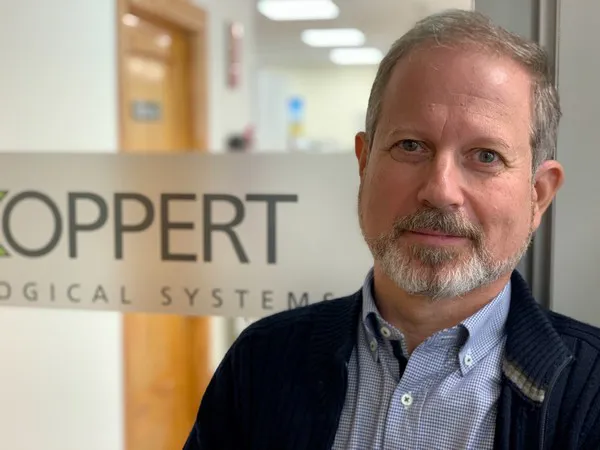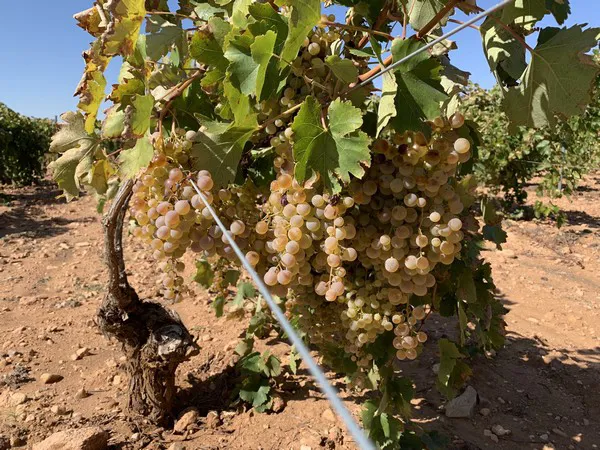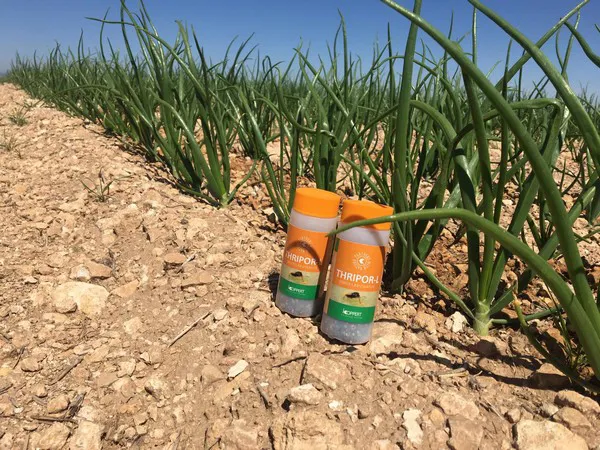"Beneficial microorganisms have arrived to open ground agriculture, and they are here to stay. These microscopic beings, which are already present in nature, leave no residues either in the soil or in the fruit, so they do not need a safety term and are completely harmless to the consumer. They are 100% natural and protect the crops from pests and diseases," says Javier Villegas, commercial director for Open ground crops of Koppert Spain.
Biological control in open ground crops is gaining ground across Spain
"In Spain, a strategic commitment has been made to beneficial microorganisms. In a short time, we have become able to change the way we manage the plant health of crops, thanks to an invisible army of nematodes and fungi. Koppert has come a long way in large-scale research and production, which has made us strong and competitive in this sector," says Javier Villegas.
 Javier Villegas, commercial director for Open ground crops
Javier Villegas, commercial director for Open ground crops
Javier Villega says that beneficial microorganisms have arrived as an effective alternative to the use of chemicals and pesticides, which are increasingly scarce as a result of the bans imposed by the administrations. In many cases, the gradual loss of chemical tools for the control of pests and diseases is leaving the producers completely defenseless and without knowing what to do to protect their crops.
A natural enemy for every disease or pest
"In this context, the use of biological control of pests and diseases, inspired by the rules of nature, is growing strongly. The goal is to find the most appropriate natural enemy to control each disease and each pest. To this end, Koppert applies an integral approach that goes far beyond the plant," says Javier Villegas.
"There are numerous biological alternatives to conventional fungicides. We supply a fully biological fungicide called TRIANUM® which functions as a protective shield against pathogens and prevents fungal root diseases, such as Fusarium, Sclerotinia, Rhizoctonia, Phytium and pathogenic nematodes. Developed by Koppert Biological Systems, TRIANUM® is a biological fungicide that contains an exclusive strain of a beneficial fungus (Trichoderma harzianum), which can be used in both conventional and organic agricultural productions. Koppert started marketing TRIANUM® three years ago in fruit and vegetable greenhouses of Almería, Granada and Murcia. After the excellent results obtained, this beneficial fungus is now also being used with open ground crops throughout Spain, such as lettuce, onions, leeks, carrots, potatoes or berries.
Effects of the biological fungicide Trianum in leeks.
"The main pests of extensive crops can be tackled with biological solutions"
Extensive crop producers already have 100% natural and residue-free biological solutions to the main pests within their reach. A thrips pest can be effectively controlled with the use of the predatory bug Orius laevigatus (THRIPOR-L®) and the entomopathogenic nematode Steinernema feltiae (ENTONEM®). Thrips larvae in the soil will be effectively controlled by releasing the Macrocheles robustulus predatory mite (MACRO-MITE®). For aphids, Koppert markets a mixture of different parasitic wasps under the trade name APHISCOUT®, while a whitefly pest can be fought with two highly effective solutions: the predatory bug Nesidiocoris tenuis (NESIBUG®) and the predatory mite Amblyseius swirskii (SWIRSKI ULTI-MITE®). In addition, Koppert has specific solutions for crops such as vineyards, citrus fruits, onions, etc.
 Biological control is effective against the main wood diseases in vineyards
Biological control is effective against the main wood diseases in vineyards
Profitability for the producer and health for the consumer
According to the company, the cost of implementing biological control depends on the crop and on the extension of the farm. "In general, the cost of biological control is similar or lower to that of chemical control. Moreover, it is worth bearing in mind that the profitability of biological control is much higher, since the beneficial effect of natural enemies continues for months, while agrochemicals are only effective for a short period of time after the treatment," says Javier Villegas.
"In addition to not putting your health at risk, as was the case with some chemical treatments, biological control entails important benefits for the producer. For example, plants are healthier and grow more. Therefore, biological control leads to increases in the production and the yield, which improves the crop's profitability. To all this we must add that biological control guarantees the zero presence of residues and is usually the first step for the transition to organic production, which is marketed for higher prices," says Javier Villega.
 Thripor-L against thrip pests in onions
Thripor-L against thrip pests in onions
More information:
Javier Villegas, Commercial Director for Open ground crops
KOPPERT SPAIN
C/ Cobre 22
Pol. Ind. Ciudad del Transporte del Poniente
La Mojonera, Almería. Spain
T: +34 950 55 44 64
F: +34 950 55 39 05
jvillegas@koppert.es
www.koppert.es
